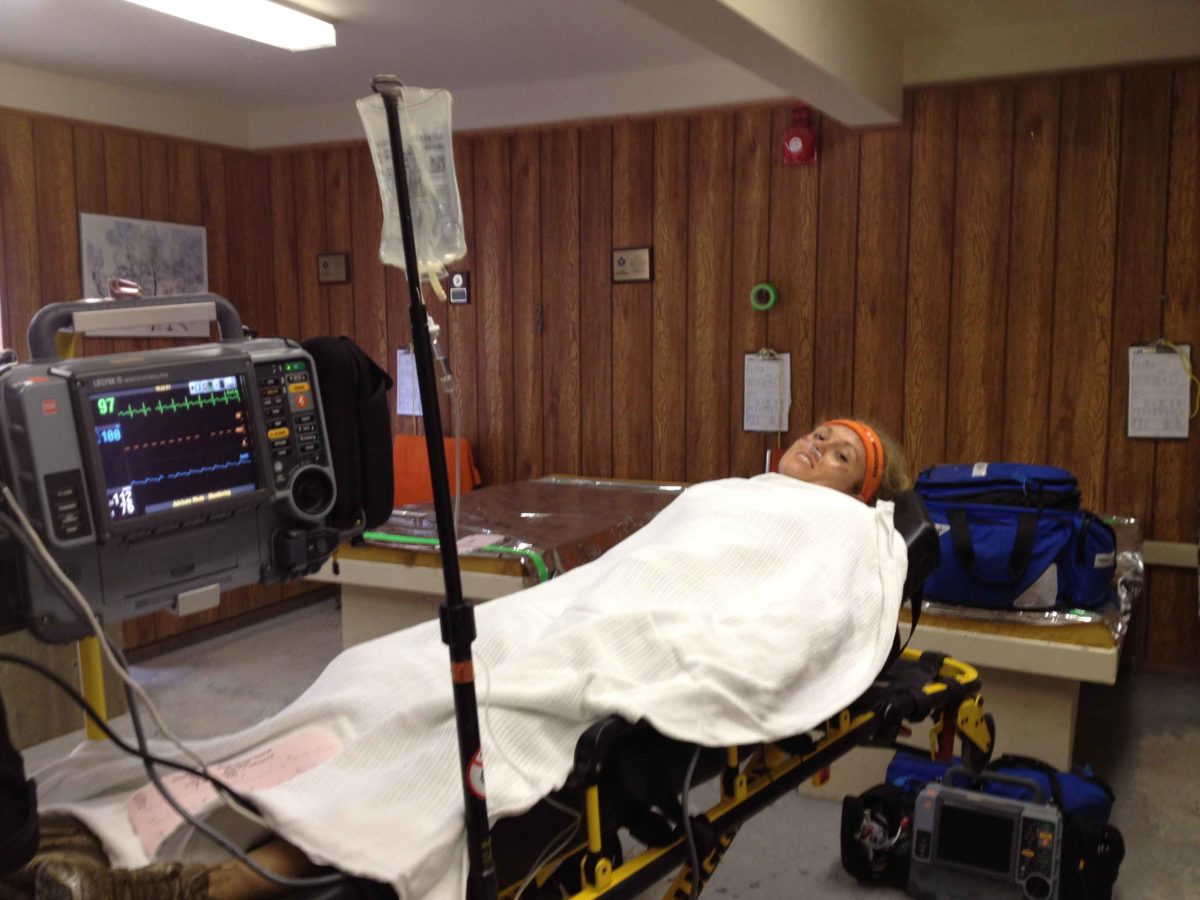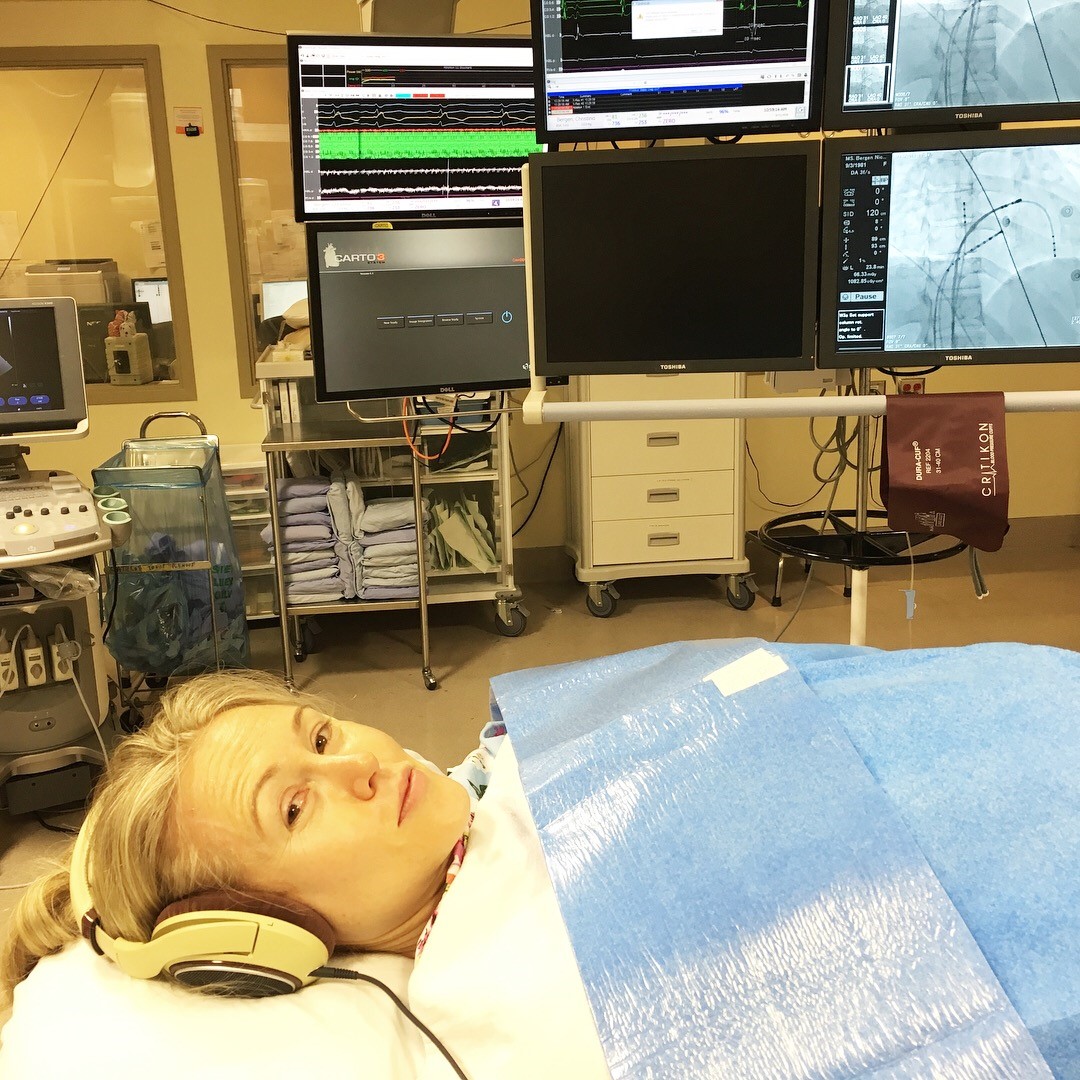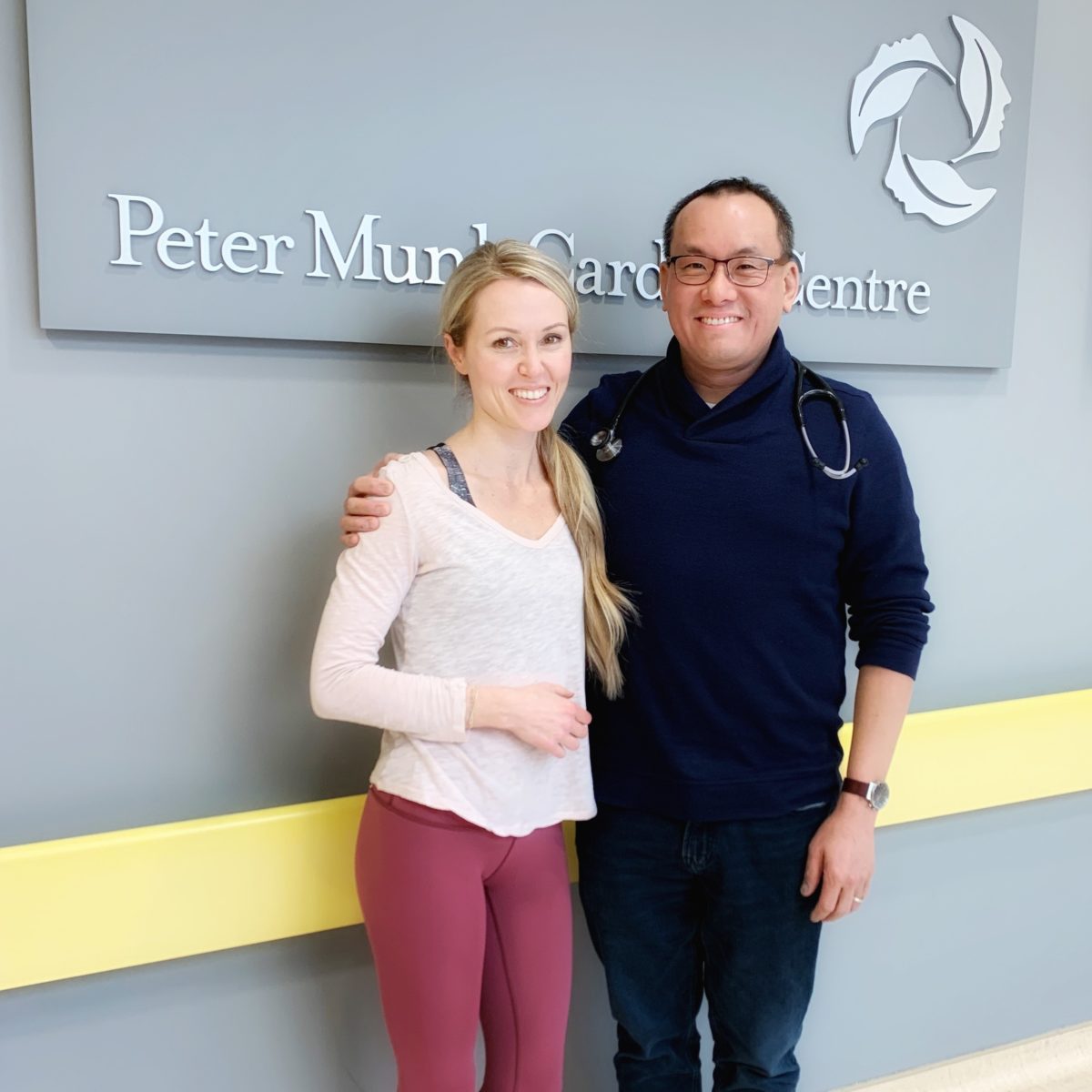Nikki (left) and her Tough Mudder team. (Photo courtesy: Nikki Bergen)
In August 2012, Nikki Bergen and some friends bravely tackled Tough Mudder, an extreme endurance event best known for its difficult obstacle courses. After completing the event, she and her friends celebrated by taking a picture mid-jump. As soon as Nikki landed on her feet, she knew something was wrong.
Nikki was experiencing a supraventricular tachycardia (SVT) episode.
SVT is a heart condition that affects 1 in 10,000 people. It’s an abnormally fast heartbeat and is triggered when faulty electrical connections in the heart set off a series of early beats in the upper chambers of the heart. Nikki’s resting heart rate would normally be 80 beats per minute but during an episode would increase up to 180 beats per minute.
Having dealt with SVT episodes since the age of 14, she thought she could curb it like she had many times before. She was dehydrated and her electrolytes were off, which contributed to this episode. Nikki laid on the grass waiting for it to pass.
It was a very busy and noisy environment with lots of people running around covered in sweaty face paint and mud after the event. Nikki felt dizzy, tired and was trying her best to remain calm. Her friends kept an eye on her but saw her condition worsen. Finally, they said, “Nikki, we think there’s a problem.”
Her friends called the paramedics, who quickly addressed Nikki’s condition as an SVT episode. “They brought me to the ski hut on their ski hill,” Nikki recalls. “When they put me on the heart rate monitor, they caught the SVT on the electrocardiogram. They gave me my first dose of adenosine to bring my heart rate back down to a normal rhythm. It worked. It was dramatic.”

Following this scary episode, Nikki visited cardiologists to get their opinion on options for her heart condition. They all suggested a heart ablation.
A heart ablation is a procedure that restores the heart to a normal rhythm. Erratic heart rhythms are caused by abnormal heart tissue causing the electrical system of the heart to fail. A heart ablation destroys these areas, and the scar tissue that forms helps to restore the heart to a regular rhythm.
Living with SVT
Nikki Bergen is one of Canada’s most sought-after health and fitness experts. She teaches pregnancy, birth preparation and postpartum Pilates classes through her company, The Belle Method, which she started in 2012. She specializes in combining Pilates and pelvic health for women. She is also a mother of two.
Nikki was very active growing up. At the age of 14, while competing on her high school swim team, was the first time she felt her heart rate skyrocket. Soon after, she was diagnosed with SVT, a heart condition she was born with.
“I didn’t want to go on beta blockers and surgery seemed excessive at 14. It didn’t really cause much of an issue until my 30s when I started experiencing more frequent episodes. It was usually when I was tired or had too much coffee.” At the time, she didn’t rely on treatments.
After the Tough Mudder incident, her SVT episodes were happening more frequently. Nikki was afraid to travel to a foreign country with no access to a paramedic with adenosine. During this time, she stopped cardio workouts, cut out caffeine and only travelled to places that were close to a hospital.
After a long journey with her heart condition and six years after her intense SVT episode at Tough Mudder and pregnant with her first child, Nikki realized how important it was for her to get the heart ablation. “I was so afraid of surgery and thought I’m just going to take my chances and then ended up having a few episodes during my pregnancy. I only needed adenosine once during that time but it was enough for me to think, ‘ok, I don’t know what the risks are for my unborn child. I have to do something about this.’ It was becoming a mom that gave me the courage to get the ablation.”
Her life-changing procedure
In August 2018, 16 weeks after giving birth to a healthy baby girl, Nikki went ahead with the heart ablation procedure, which was performed at the Peter Munk Cardiac Centre at Toronto General Hospital.
Nikki says getting the ablation was peace of mind. She is grateful for her incredible team at the Peter Munk Cardiac Centre, especially staff electrophysiologist Dr. Douglas Ing. For Nikki, the care she received from Dr. Ing was exactly what she needed. “He was willing to meet me where I was at. I wasn’t a typical patient for him but I loved that he was very human and empathetic.”
Nikki also fondly remembers Dr. Ing’s assistant, Evelyn Angus. “She was really kind, and the gatekeeper. She knew all the other stuff I had going on.”

Dr. Ing had never had a patient like Nikki before – she asked to listen to music during the procedure. Dr. Ing supported Nikki every step of the way.
“I read message boards and I was most anxious about having to hear. Although I’d be sedated, I didn’t want to hear the surgeons talking,” says Nikki. “I knew that would cause me anxiety so I had my phone and noise-cancelling headphones. I told Dr. Ing, I wanted to listen to music. He was like, ‘yea sure, no problem.’ I thought that was so awesome. I knew he wasn’t used to having a patient request that but I loved that he was open to it.”

Nikki’s heart ablation was successful. She even went home the same day, returning to her life as a new mom.
Since her ablation, Nikki has not had any major SVT episodes. “I have had minor episodes that have lasted five seconds but they quickly convert on their own, back to normal.” Dr. Ing reassured her this was normal and in a follow up appointment, Dr. Ing told Nikki she was medically cured.
This was the moment she knew she no longer had to live in fear of triggering another SVT episode.
Sharing her journey on social media
With her active presence on social media and as a committed advocate for women’s health, Nikki believed other women could relate to her experience. “Since sharing I’ve had so many people reach out. A lot of women my age have this condition and are really scared about it. I have been told by my doctor, for women, it’s often misdiagnosed as anxiety and that it’s all in your head. That’s valid but sometimes it’s more than that and needs to be taken seriously.”
“I say, ‘I had surgery but guess what – birth was more work’ and they feel more validated. A lot of women feel fear over things they cannot control. In many ways, my heart condition prepared me for motherhood, where you have to learn the difference between what you can and cannot control.”
Nikki believes we are all stronger than we think. She recounts these feelings on her personal blog.
Now, three years after having her heart ablation, Nikki had a second child and feels freedom in how she lives her life, “I have the freedom to live my life without fear of triggering another episode, I can drink coffee, run after my kids, travel and not worry that I have be close to a major hospital. I will be forever grateful for the expert and empathetic care I received from Dr. Ing and his team. It really was life changing.”
